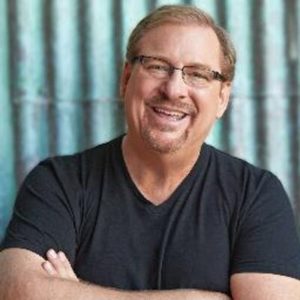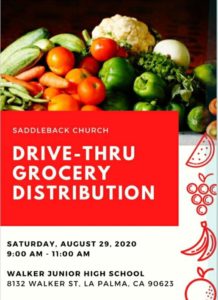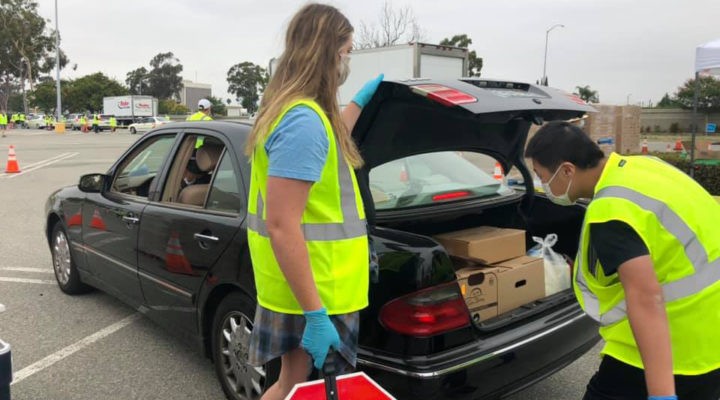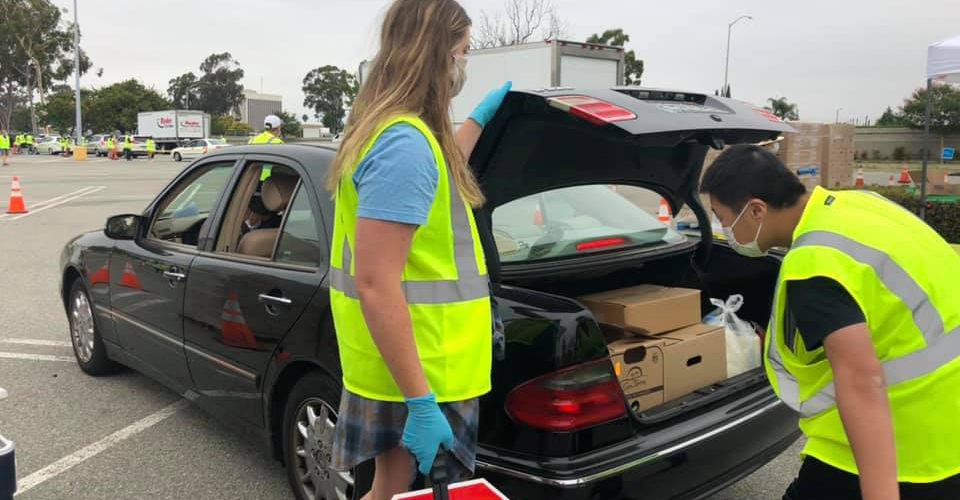Christmas week brought more twists and turns to the legal battles in California over coronavirus-forced closures of in-person worship, while the spike in COVID infections, hospitalizations and deaths skyrocketed.
In contrast to a few pastors and churches that have made headlines since March for fighting public health directives against large in-person gatherings, the Baptist pastor of one of the state’s largest churches said love compels him to follow health orders.

Rick Warren
“Some churches are willing to gamble the health of their people. I’m not,” said Rick Warren, pastor of Saddleback Church in Southern California. “The good shepherd prays for his sheep, cares for his sheep. One day I will be responsible. I don’t want to be a super-spreader. I’m not doing this out of fear; I’m doing this out of love. You wear a mask for love of your neighbors, yourself.”
Warren made the comments in an interview with Relevant magazine published Dec. 21.
The pastor, who is known for innovation in church growth and evangelism, said COVID-19 has “revealed a fundamental weakness in the church. Most churches only have one purpose: worship. And if you take worship away, you’ve got nothing. They’re in a hurry to get back to worship because that’s all they’ve got.”
Saddleback and its 14 California campuses and four international campuses are built on five purposes, not just one, he told the magazine. “You take one circle out, we’ve still got four other circles. We’ve got ministry going on. We’ve got mission going on. We’ve got fellowship going on. We’ve got discipleship going on. Those all stand on their own.”
During the pandemic, Saddleback members “have led over 16,000 people to Christ,” he said. “We’re in revival. We’re averaging about 80 people a day coming to Christ — 80 people a day.” Most of that, he added, has come through one-on-one evangelizing, not by his sermons.
He disagrees with pastors who contend churches are being persecuted by the government because of public health restrictions.
“We’re not being discriminated against. This is a safety issue.”
“They might have a discrimination case if theaters weren’t closed, football games weren’t closed, concerts weren’t happening. But they are,” he said. “We’re not being discriminated against. This is a safety issue. Regal Cinemas closed down 650 theaters. Disney laid off 28,000 people. We’re not being discriminated against.”
These challenges have caused Saddleback to innovate again in ministry, Warren reported.
 “We looked around and made a list of all the different problems that COVID was creating. For instance, the first one was food. People needed food. There are a lot of people out of work, and they’re hand-to-mouth, and 126 food banks shut down in Southern California when COVID started, because there was a rush on food. …. Saddleback had three food pantries already up and running. Typically, in a normal month, we feed about 2,000 families. The first month of COVID, we fed 45,000 families.”
“We looked around and made a list of all the different problems that COVID was creating. For instance, the first one was food. People needed food. There are a lot of people out of work, and they’re hand-to-mouth, and 126 food banks shut down in Southern California when COVID started, because there was a rush on food. …. Saddleback had three food pantries already up and running. Typically, in a normal month, we feed about 2,000 families. The first month of COVID, we fed 45,000 families.”
Then the church created pop-up food pantries at schools and in neighborhoods, he explained. “We partnered with every school district in Orange County. According to the recent report I got, over 13,000 Saddleback volunteers have served over 3.5 million pounds of food to over 300,000 families. We’re the largest food distributor in Southern California.”
Meanwhile, other California churches continued their legal fights against Gov. Gavin Newsom’s restrictions on public gatherings — emboldened by a late November Supreme Court ruling against extreme COVID restrictions in New York.
As a result of that high court ruling, a case brought earlier by Harvest Rock Church, a nondenominational church with multiple campuses across California, was sent back to a lower federal court for review.
On Dec. 21, U.S. District Court Judge Jesus Bernal for a second time denied the church’s request to avoid the governor’s mandate — despite what the Supreme Court had ruled in New York.
Judge Bernal was not sympathetic to the rerun of the Harvest Rock case, noting the state’s restrictions did not prohibit outdoor worship or worship in general.
“The Constitution is not a suicide pact.”
“The state has a compelling interest in curbing the spread of what is now the world’s deadliest infectious disease,” he wrote. He added: “The Constitution is not a suicide pact.”
Harvest Rock Church then filed an emergency injunction with the federal appeals court, hoping to get permission to hold indoor, in-person services on Christmas Eve. The appeals court denied that request on a 2-1 vote.
Since the U.S. Supreme Court ruling on the New York case Thanksgiving Eve, a small flurry of related litigation has been sent back to lower courts for review and, in some cases, new cases have been dropped. However, the nationwide effect of the New York ruling remains uneven because of variations in government-imposed restrictions. The New York case addressed a specific set of restrictions.
Over Christmas week, Twitter remained abuzz with reports that Grace Community Church in Los Angeles — which has led the public fight against all health restrictions — had become the source of a viral outbreak among its staff and congregants. Some critics seized upon the fact that Pastor John MacArthur was missing from Sunday services Dec. 27, with an explanation given to congregants that he was “at home resting.”
At a question-and-answer session with his congregation Sunday night, Dec. 6, MacArthur was asked about the COVID-19 vaccines and whether Christians should take them.
MacArthur’s response: “As it is now, you have a 99.998% chance of having no lasting effects from COVID. From what we hear now, the vaccine is 94% effective, so why reduce your odds?”
In Los Angeles County alone, 707,000 people are known to have been infected with the virus, and 9,438 people are known to have died from it.
He previously told his congregation “there is no pandemic” and cited similar statistics to downplay the effects of being infected with COVID. Yet in Los Angeles County alone, 707,000 people are known to have been infected with the virus, and 9,438 people are known to have died from it. That’s a 1.3% mortality rate among those infected, not counting the survivors who miss weeks of work or suffer long-term effects.
The pastor wouldn’t say with certainty whether he would take a COVID vaccine but did express skepticism in general about vaccines. “I took the flu vaccine twice, and both times I got the flu,” he said. “They’re injecting you with the illness.”
Regarding COVID, “I’m neither for nor against the vaccine. … We do know this: We’ve had flu vaccines for years and year and years, and the numbers in terms of its effectiveness don’t even approach 50%.”
The U.S. Centers for Disease Control reports that getting the annual flu vaccine reduces the risk of becoming ill with the flu by 40% to 60% depending on the year and the active strains.
“During 2019-2020, flu vaccination prevented an estimated 7.5 million influenza illnesses, 3.7 million influenza-associated medical visits, 104,000 influenza-associated hospitalizations, and 6,300 influenza-associated deaths,” the CDC said.
Related articles:
As COVID cases soar, court’s retreat opens doors of churches
What does the Supreme Court’s midnight COVID ruling really mean for religious liberty?
Noah had a quick trip compared to John MacArthur’s battle with Los Angeles County


